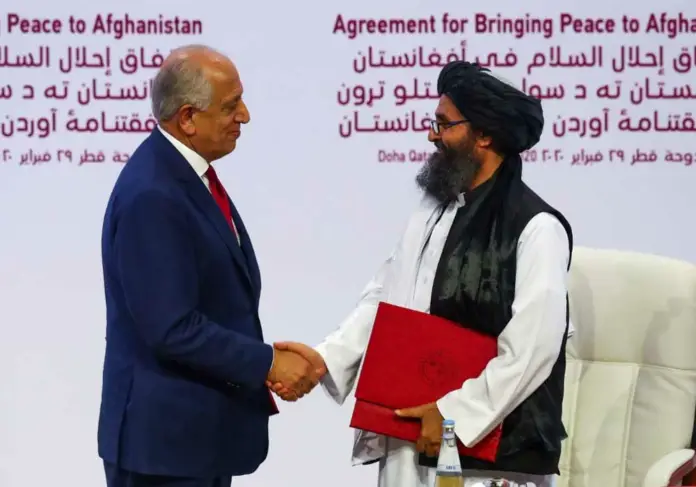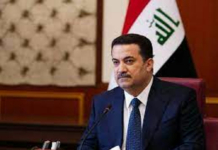The US drone strike that killed al-Qaida leader Ayman al-Zawahri on the balcony of a Kabul safe house intensified global scrutiny Tuesday of Afghanistan’s Taliban rulers and further undermined their efforts to secure international recognition and desperately needed aid.
The Taliban had promised in the 2020 Doha Agreement on the terms of the US withdrawal from Afghanistan that they would not harbour al-Qaida members. Nearly a year after the US military´s chaotic pullout from Afghanistan, al-Zawahri´s killing raises questions about the involvement of Taliban leaders in sheltering a mastermind of the 9/11 terror attacks and one of America´s most-wanted fugitives.
The safe house is in Kabul’s upscale Shirpur neighbourhood, home to several Taliban leaders who had moved into mansions of former top Afghan officials of the toppled Western-backed government. The Taliban initially sought to describe the strike as America violating the Doha deal, which also includes a Taliban pledge not to shelter those seeking to attack the US – something al-Zawahri had done for years in internet videos and online screeds. The Taliban have yet to say who was killed in the strike.
Meanwhile, rumours persist of unease in the Taliban ranks – particularly between the powerful group known as the Haqqani network, which apparently sheltered al-Zawahri, and other Taliban figures.
“The killing of Ayman al-Zawahri has raised many questions,” said one Pakistani intelligence official, who spoke on condition of anonymity to The Associated Press as he wasn’t authorized to speak publicly to reporters. Al-Zawahri took over as al-Qaida´s leader after Osama bin Laden was killed in Pakistan in 2011, in an operation by US Navy SEALs. “The Taliban were aware of his presence in Kabul, and if they were not aware of it, they need to explain their position,” the official said.
The strike early Sunday shook awake Shirpur, once home to historic buildings bulldozed in 2003 to make way for luxury homes for officials in Afghanistan’s Western-backed government and international aid organizations. After the US withdrawal in August 2021, the Taliban elite began taking some of the abandoned homes there.
The house where al-Zawahri stayed was the home of a top aide to senior Taliban leader Sirajuddin Haqqani, according to a senior US intelligence official. Taliban officials blocked AP journalists in Kabul from reaching the damaged house on Tuesday. The Haqqani network is an Afghan Islamist insurgent group, built around the family of the same name. In the 1980s, it fought Soviet forces and over the past 20 years, it battled US-led NATO troops and the former Afghanistan government.
Sirajuddin Haqqani has also served as the first deputy leader of the Taliban movement since 2016. Since last August, he also served in the appointed interior ministry of the Taliban government. The US government maintains a $10 million bounty on him for “numerous significant kidnappings and attacks against US and coalition forces in Afghanistan, the Afghan government and civilian targets.” But the Haqqanis, from Afghanistan’s eastern Khost province, have disagreed with others in the Taliban leadership, mostly from the southern provinces of Helmand and Kandahar. Some believe Sirajuddin Haqqani wants more power. Other Taliban figures have opposed the Haqqanis’ violent attacks against civilians in Kabul and elsewhere.
“It seems to me that the power struggle within the Taliban in general. It´s not necessarily about the US or about the international community. It´s about the new regime, how to share power within the new regime, who gets the what position, who gets to control what ministries, to decide the general policies and so on,” said Jerome Drevon, the International Crisis Group’s senior analyst studying Islamist militant groups.
“It´s not that surprising that the building would be owned by the Haqqani family. … That creates a tension between what the Taliban movement is, especially in terms of how it´s trying to reach out to the international community, to normalize itself and so on,” he said. The timing of the strike also couldn’t come at a worse time politically for the Taliban. The militants face international condemnation for refusing to reopen schools for girls above the sixth grade, despite earlier promises. The United Nations mission to Afghanistan also criticized the Taliban for human rights abuses under their rule.







